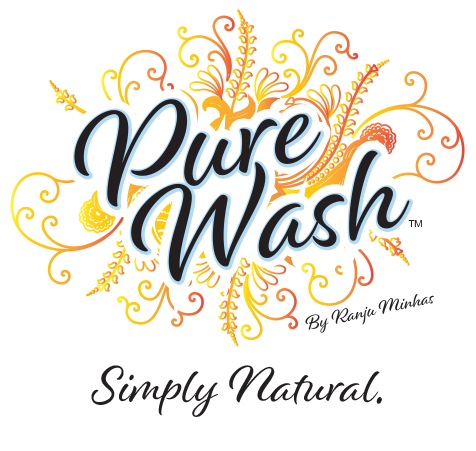Is it really chemical free?
Yes! During the saponification process (the chemical reaction of making soap) the lye or sodium hydroxide (NaOH) gets used up, meaning that the lye turns oil into soaps. During the curing time, lasting 3–4 weeks, the moisture in the soap evaporates and traces of lye disappear as the oil saponifies.
There is no lye present in the finished bars of soap or shampoo.
Why does my soap not smell like usual soaps?
Our soaps do not contain synthetic fragrances. The mild fragrance is attributed to essential oils and use of herbs.
Who is making my soap?
At the moment, Ranju makes all her soaps at her small workshop in her home. We are a small home-grown business and make our soaps based on demand. You can read more about Ranju in our About Us section.
Are pure wash soaps safe for use in children?
Yes they are. However, use basic precaution of avoiding contact with eyes and mouth. If your child has a certain skin condition like eczema, please mention this in your order and we can custom-make a soap to ensure that your child benefits from Pure Wash soaps.
How are pure wash soaps different from the usual soaps available in the market?
Pure Wash soaps are made from pure vegetable oils and herbs. These soaps address specific skin issues and each soap is unique in its make. Pure Wash soaps are free from sulfates, parabens, phthalates, paraffin, propylene glycol, mineral oil, synthetic fragrance, and synthetic color.
Why is your packaging so basic?
We cannot really make a difference to the environment if we continue to use plastic packaging. We believe in zero-waste and often times recycle packaging materials or if we do need to use new packaging, we use glass jars or butter paper to wrap our soaps.

